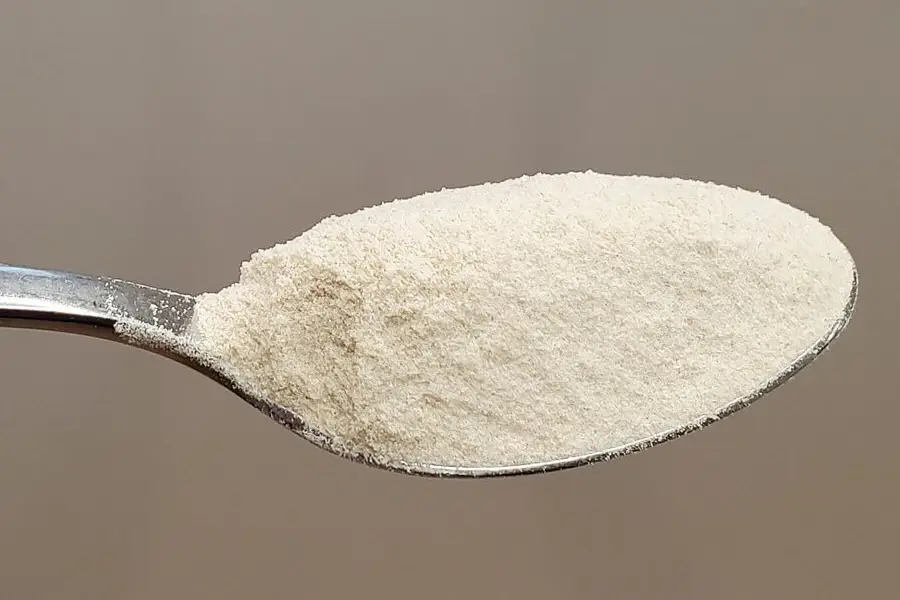Psyllium is a type of soluble fiber that is effective in lowering cholesterol levels in the body. Research investigations have proven this. The capacity of the chemical to bind to bile acids in the digestive tract, thereby preventing those acids from being reabsorbed into the bloodstream, allows this to be performed. As a result of its ability to prevent the absorption of bile acids, psyllium has been demonstrated to be particularly helpful in reducing cholesterol levels. When cholesterol is broken down, bile acids are generated.
Psyllium has been shown to have these favorable effects.
Additionally, because it takes the body longer to digest food, psyllium can help reduce cholesterol levels. This is because it slows down the digestion process. Before cholesterol is excreted from the body, this gives the body more time to absorb cholesterol from the food that it has consumed.
Plantago ovata plant, it is frequently utilized as a nutritional supplement
Psyllium is a type of soluble fiber that has been shown to have a range of beneficial benefits on one’s health, most famously in terms of one’s cholesterol levels. Psyllium has been shown to have these favorable effects. Because it is obtained from the seeds of the Plantago ovata plant, it is frequently utilized as a nutritional supplement or a component in a wide variety of foods and beverages. There are many different applications for this substance.
Research indicates that psyllium can be beneficial in lowering LDL cholesterol levels, sometimes referred to as “bad” cholesterol. Psyllium has also been shown to help reduce overall cholesterol levels. People who had high cholesterol and took 10 grams of psyllium twice a day for 12 weeks saw a reduction of 7% in their total cholesterol levels and a reduction of 13% in their LDL cholesterol levels, according to the findings of a study that was presented in the Journal of the American Medical Association. Researchers from the University of Utah conducted the study.
Ultimately found to be circulating in the body is decreased
Because it can bind to cholesterol in the digestive tract, psyllium is an excellent agent for decreasing cholesterol levels. This is because it stops cholesterol from being absorbed into the bloodstream within the body. As a result, the quantity of cholesterol that is ultimately found to be circulating in the body is decreased, which in turn contributes to a reduction in the risk of cardiovascular disease and other health problems.
It has been demonstrated that psyllium can have several positive health benefits, one of which is the capacity to lower cholesterol levels in the body. For instance, it can help manage blood sugar levels, improve digestion, and promote sensations of fullness, all of which can be beneficial in attempting to lose weight. Moreover, it has the potential to induce sensations of satiety, which can help prevent excessive eating.
New supplement or regimen is safe and appropriate
When lowering your cholesterol levels and promoting your overall health and wellness, incorporating psyllium into your diet may be a straightforward and effective way to achieve both objectives. To ensure that the new supplement or regimen is safe and appropriate for your particular needs, it is vital to chat with your healthcare professional before commencing a new dietary regimen or supplement. This conversation should take place before you begin the new regimen or supplement.
Even though psyllium is thought to be safe for ingestion by the vast majority of people, it has been known to cause several undesirable symptoms, including flatulence, diarrhea, and gas. Therefore, it is advisable to start taking psyllium at a low dose and gradually increase it until you reach the prescribed level. This will help prevent any bad reactions that may occur. Because psyllium has the potential to suck water from the feces, it is crucial to take a considerable number of liquids when taking the supplement. Additionally, it is essential to drink plenty of water.
If you are considering getting this supplement, you should first discuss the possibility of taking psyllium to help lower your cholesterol levels with your primary care physician. They will be able to assist you in calculating the optimum dosage for your requirements and take the necessary precautions to ensure that psyllium is safe for you to eat.

Dominic E. is a passionate filmmaker navigating the exciting intersection of art and science. By day, he delves into the complexities of the human body as a full-time medical writer, meticulously translating intricate medical concepts into accessible and engaging narratives. By night, he explores the boundless realm of cinematic storytelling, crafting narratives that evoke emotion and challenge perspectives.
Film Student and Full-time Medical Writer for ContentVendor.com




